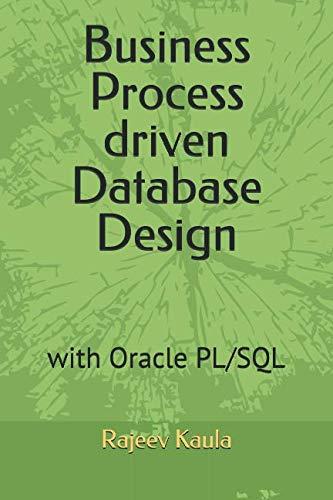Answered step by step
Verified Expert Solution
Question
1 Approved Answer
The purpose of this assignment is to learn to develop multi-process programs. Y ou are expected to extend the myshel1.c program and add pipelines and
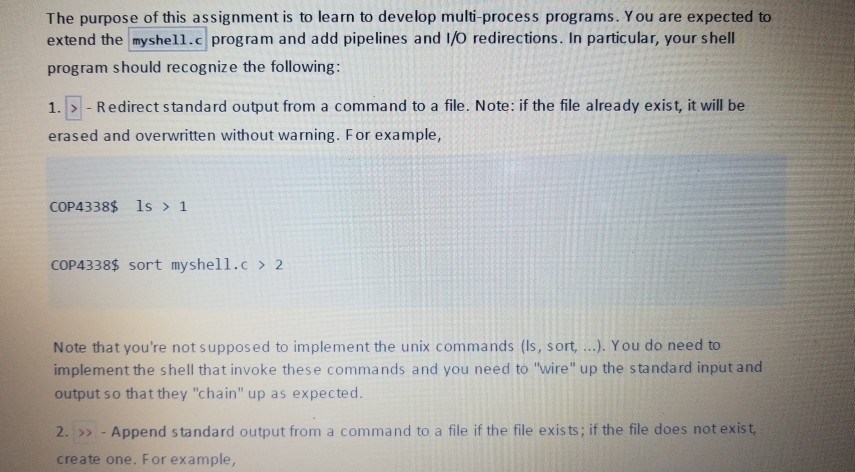
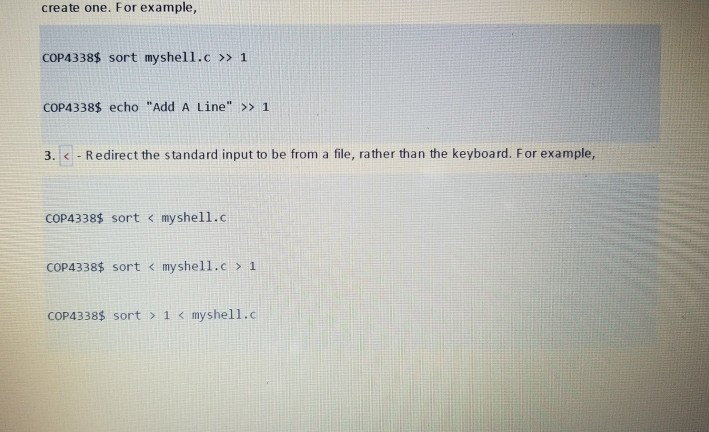
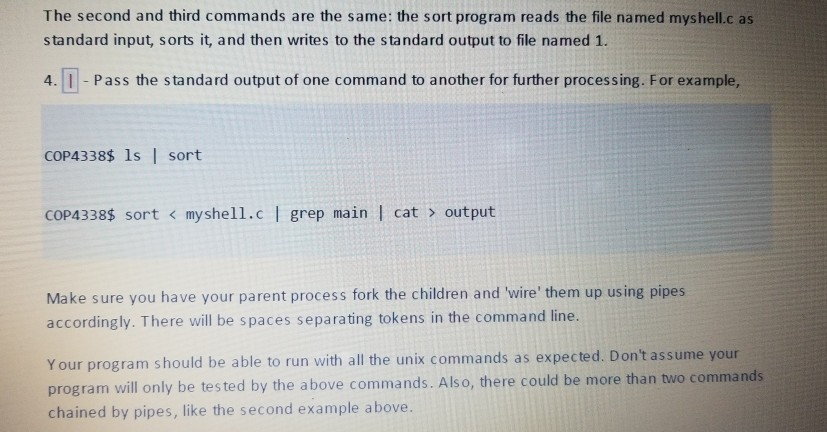
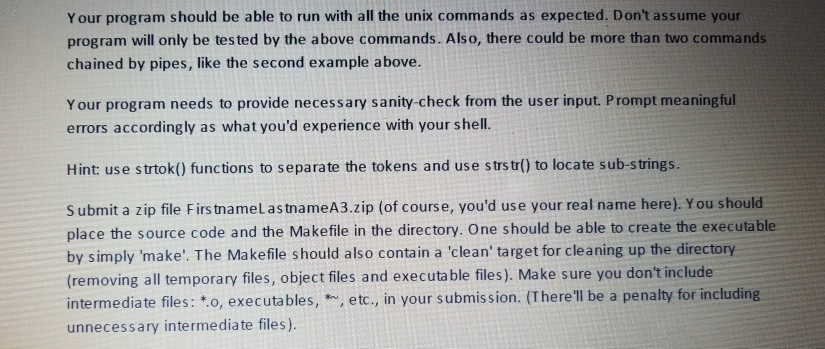
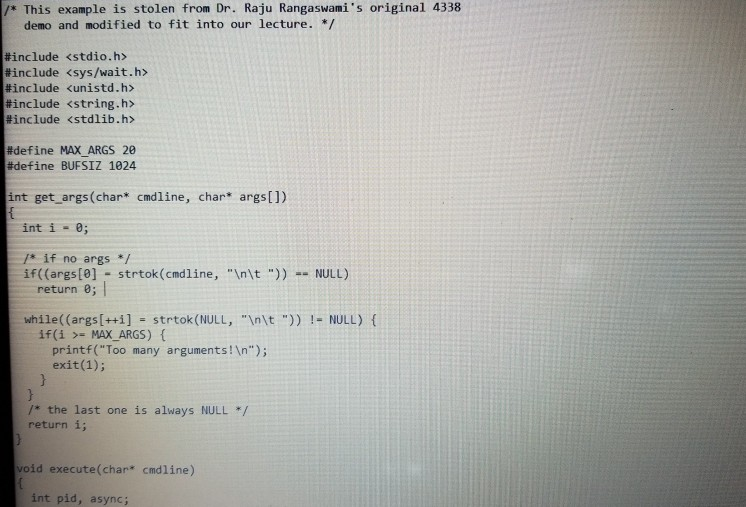
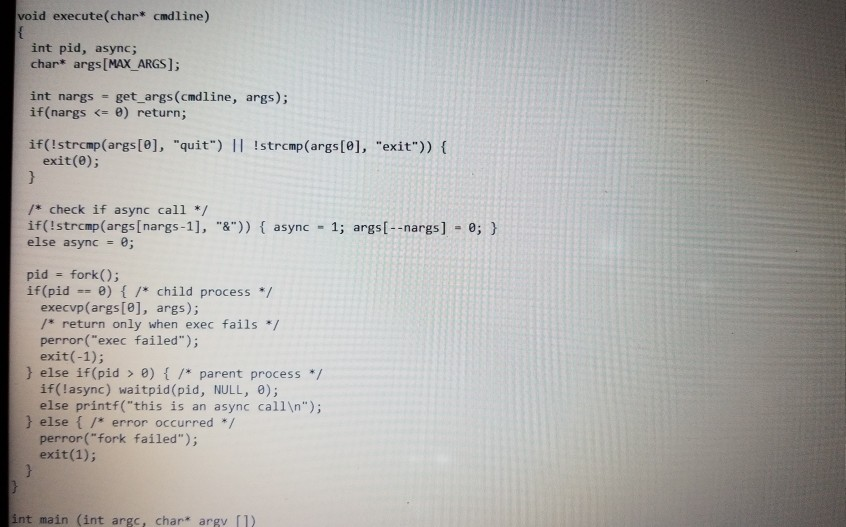
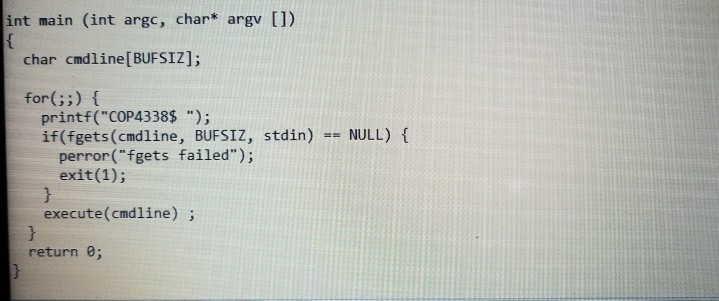
The purpose of this assignment is to learn to develop multi-process programs. Y ou are expected to extend the myshel1.c program and add pipelines and I/O redirections. In particular, your shell program should recognize the following 1.-Redirect standard output from a command to a file. Note: if the file already exist, it will be erased and overwritten without warning. For example, COP4338$ 1s 1 COP4338$ sort myshell.c 2 Note that you're not supposed to implement the unix commands (Is, sort, ...). You do need to implement the shell that invoke these commands and you need to "wire" up the standard input and output so that they "chain" up as expected 2. -Append standard output from a command to a file if the file exists; if the file does notexist create one. For example, create one. For example, COP4338 sort myshell.c 1 COP4338 echo "Add A Line" >> 1 3. 1 COP4338 sort > 1 output Make sure you have your parent process fork the children and 'wire them up using pipes accordingly. There will be spaces separating tokens in the command line Y our program should be able to run with all the unix commands as expected. Don't assume your program will only be tested by the above commands. Also, there could be more than two commands chained by pipes, like the second example above Your program should be able to run with all the unix commands as expected. Don't assume your program will only be tested by the above commands. Also, there could be more than two commands chained by pipes, like the second example above. Y our program needs to provide necessary sanity-check from the user input. Prompt meaningful errors accordingly as what you'd experience with your shell. Hint: use strtok() functions to separate the tokens and use strs tr() to locate sub-strings. S ubmit a zip file Firs tnamelastnameA 3.zip (of course, you'd use your real name here). You should place the source code and the Makefile in the directory. One should be able to create the executable by simply make'. The Makefile should also contain a 'clean' target for cleaning up the directory (removing all temporary files, object files and executa ble files). Make sure you don't include intermediate files: .o, executables, , etc., in your submission. (There'll be a penalty for including unnecessary intermediate files). /* This example is stolen from Dr. Raju Rangaswami's original 4338 demo and modified to fit into our lecture. */ #include include #include include #include stdio.h>
Step by Step Solution
There are 3 Steps involved in it
Step: 1

Get Instant Access to Expert-Tailored Solutions
See step-by-step solutions with expert insights and AI powered tools for academic success
Step: 2

Step: 3

Ace Your Homework with AI
Get the answers you need in no time with our AI-driven, step-by-step assistance
Get Started


